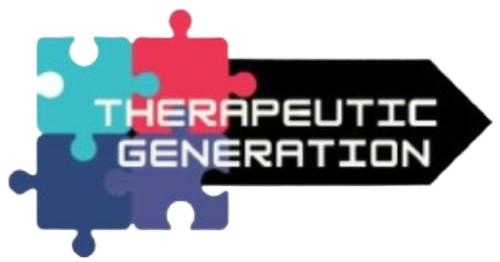Frequently Asked Questions

What are your rates?
Contact us today via email: [email protected] or call (301) 755 4425 for specific information.
How long is each session?
Session length depends upon the needs of each child, with options of 30-minutes, 45-minutes and one-hour sessions for Speech, Occupational, and Physical Therapies. ABA Therapy sessions are contingent upon determinate needs based on Behavior Analysis Assessments with options of one-hour to 6 hour sessions.
How long will my child need therapy?
- Severity of difficulties child is experiencing at the start of Therapy
- Consistency of attendance
- Parents/teachers/caregivers’ ability to incorporate goals into daily routines. At Therapeutic Generation, communication with caregivers is a crucial part of Therapy, facilitating extension of newly acquired skills to other environments.
- Motivation: Therapeutic Generation Therapists strive to make sessions meaningful and fun so that children are motivated to participate in activities, leading to greater effectiveness.
Who can I contact with questions regarding my child's progress in therapy?
Once your child has undergone evaluation and begun Therapy, measurable goals will be set, enabling you to constantly assess your child’s ongoing progress. Parent and Therapist work as a team in helping your child reach success and we encourage any questions or concerns be directly addressed with your Therapist.
What is the youngest age you can provide therapy for?
Therapeutic Generation facilitates Therapy services for individuals ranging from a few days old to 21 years old, with a focus on providing support and care for infants and young people.
What is sensory integration dysfunction/sensory processing disorder?
Sensory integration, often referred to as sensory processing, occurs when the nervous system takes in messages from the senses and turns them into appropriate motor and behavioral responses. Sensory processing disorder results when a child is unable to organize information from sensory input into appropriate responses. Sensory areas that are involved in sensory processing include visual, auditory, tactile (touch), olfactory (smell), taste, proprioception (sense of where our bodies are in space), and vestibular (balance).
Some children may over-respond and others may under-respond to certain sensations. What appears to be bad behavior can be a defensive response to a sensation perceived as threatening due to faulty sensory processing. To a child who is hypersensitive to touch, for example, an inadvertent bump from another child may be perceived as a hard shove and lead to an aggressive reaction. Another child may be under-responsive to sensation and eat food that is too hot without reaction. While everyone has some degree of inadequate processing of sensation (e.g. resistance to touching gooey textures, sensitivity to loud noises) the question to ask is the extent of impact on the child’s development and ability to function in all environments. When sensory processing disorder is significant, a child’s everyday functioning becomes affected.
Sensory integration/processing disorder is treated through sensory-based occupational therapy, facilitating more appropriate organization of sensory information, which leads to more suitable responses and behavior.
What areas do your speech Therapists address?
Our highly trained Speech Therapists include those with specialties in speech intelligibility (articulation, phonological processing, and apraxia), oral motor, auditory processing, receptive and expressive language in toddlers, preschoolers and school-age children. Therapeutic Generation facilitates Speech Therapists trained in pragmatic language, fluency, as well as language deficits related to Autistic Spectrum Disorders including Asperger’s syndrome, Rett syndrome, Childhood Disintegrative Disorder (CDD) Kanner’s syndrome, and Pervasive Developmental Disorder (PDD).
What is the difference between Occupational Therapy and Physical Therapy?
While both Occupational and Physical Therapy address developmental functional goals and can
overlap, there are fundamental distinctions in the primary focus of each. Physical Therapy focuses on developing and enhancing mobility so that children can safely and successfully participate in activities at home, in school, on the playground and in their community. Physical Therapists work on strength, mobility, muscle development, balance, postural control, range of motion, coordination, endurance, motor planning and fitness. Physical Therapy addresses developmental milestones such as crawling, walking, running, jumping, as well as developing strategies to accomplish more complex motor tasks such as sports related skills, which can be crucial for successful interaction with peers in school and in the community.
The goal of Occupational Therapy is to optimize a child’s ability to perform their occupation – which is primarily play – in all environments. The necessary skills include fine motor skills, sensory processing and regulation, attention, strengthening, perception, motor planning, self-help skills, and coordination. Gross motor skills are addressed, as well, in the context of providing a strong foundation upon which fine motor skills can be developed.
Why does Therapeutic Generation place so much emphasis on caregiver involvement?
When a child is taken to the Pediatrician for an ailment, often there are quick solutions. Pediatric Therapy of any kind requires patience and consistency, as it is an evolving process. The most optimal way for a child to progress toward goals in speech, Occupational or Physical Therapy, is when caregivers (e.g. parents, teachers, daycare personnel) are educated by the treating Therapist to incorporate Therapeutic activities into everyday routines, enabling newly acquired skills to be integrated more efficiently. An informed caregiver can also provide valuable feedback to the Therapist, facilitating more focused and effective Therapy.
Does Therapeutic Generation provide off-site Therapy, for example, at my child's school?
We are happy to send Therapists to observe your child at school, but Therapy will be more beneficial when taking advantage of the wide selection of resources and equipment available at our center.
Site Map
Home
Our Services
Our Team
FAQs
Career
About Us
Contact Us
Services
Individual ABA Therapy
Speech Therapy
Occupational Therapy
Physical Therapy
Contact
(301) 755-4425
Info@TherapeuticGeneration.com
1481 Center Avenue, Fort Lee, NJ 07024
Therapeutic Generation
Start moving towards a better tomorrow with personalized Therapeutic services carefully personalized to align with your family or business needs.
